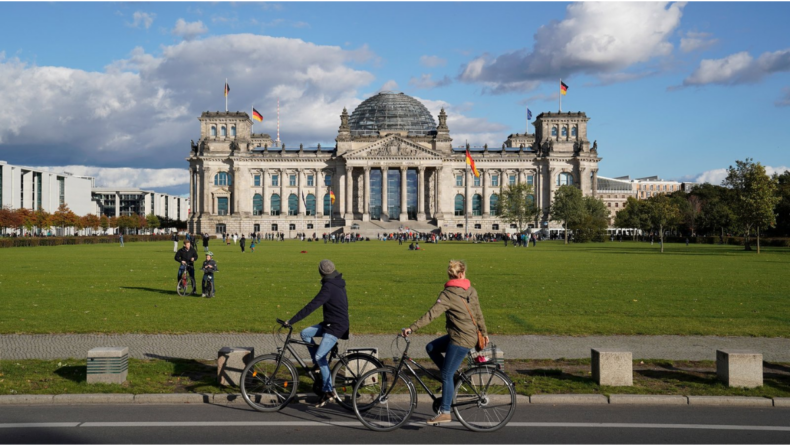
The European Union (EU) and European integration are the pillars of German foreign policy and determine its direction. As a result, strengthening EU cohesion and strong cooperation with all EU member states are at the center of foreign policy.
In light of shifting global power dynamics, Germany can only maintain its ability to act through a strong EU and collaboration with its European partners. As a result, the German government is dedicated to stronger European collaboration. Particularly in areas such as the EU’s shared foreign and security policies. As well as collaborative measures to protect Europe’s external borders, develop internal security, and boost economic policy.
Commitment to the maintenance of peace and security
Germany’s foreign policy is dedicated to world peace and security. Germany’s peace and security strategy is primarily defined multilaterally. It is within the framework of global organizations and structures such as the EU, NATO, the UN, the OSCE, the G7, and the G20.
Germany assumes security responsibilities, including military action when necessary. Such as in the fight against the so-called Islamic State (IS) and the stabilization of Afghanistan and Mali.
Germany’s peace and security strategy includes activities in the areas of crisis prevention, stabilization, post-conflict peacebuilding, and humanitarian aid. Germany is presently one of the major humanitarian aid givers in the world. It’s also a leader in civil crisis prevention, mediation, and stabilization.
Human rights, democracy, and the rule of law
Germany’s foreign policy is to enhance democracy, the rule of law, and human rights all over the world. Germany supports these ideas not only because it believes in them, but also because it is in its foreign policy interests.
Peace, security, stability, and long-term development can only be achieved when democratic and rule-of-law principles are followed, human rights are upheld. Promoting democracy, the rule of law, and human rights with confidence is therefore an important part of German peace and security strategy.
German foreign policy committed to a global multilateral order
Globalization must be fair and sustainable, according to German foreign policy. For world peace and security, global justice is a must. Climate protection, displacement and migration, the 2030 Agenda for Sustainable Development are the major topics that German foreign policy addresses.
In an increasingly interconnected world, Germany advocates enforceable rules and efficient multilateral institutions that ensure orderly and intimate cooperation. Because Germany is more tied to the rest of the globe than nearly any other country. Germany is a strong, rules-based international order is in its best interests. As a result, German foreign policy aims to strengthen long-standing organizations. It also likes to strengthen structures like the EU, NATO, the United Nations, the OSCE, and the G7. Also, like the new themes of order, alliances, and international formats.
Germany considers multilateralism to be the most fundamental principle for world order and will continue to support it.
Foreign policy’s three cornerstones
Two secondary pillars surround the fundamental pillar of German foreign strategy.
As a trading nation, Germany is particularly interested in a successful foreign economic strategy. It assists businesses in accessing international markets and improving business conditions. The third pillar of German foreign policy is cultural relations and education policy.
Academic exchange, international German schools, and the promotion of German as a foreign language are among its instruments. This policy establishes a firm foundation for international relations and global trust in Germany. Thus, encouraging intercultural conversation which is a crucial role for a country with such strong international ties.













